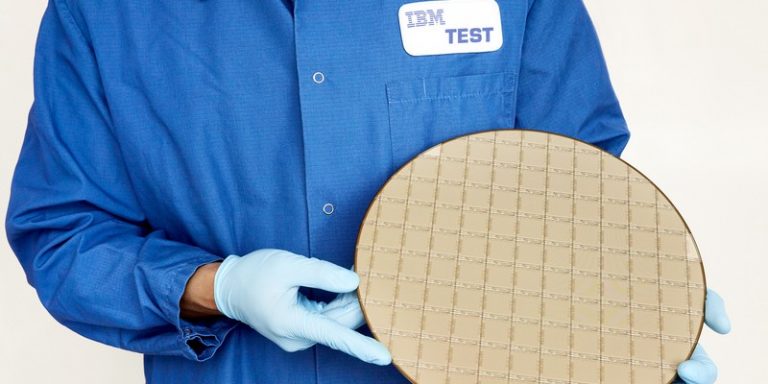
Last May, IBM Research showcased its latest creation: a technology for creating 2-nanometer chips. On August 23, the firm unveiled Telum, its first chip with AI inference acceleration, which is expected to perform tasks such as fraud detection in banking transactions. It is the result of three years of development and will be widely used in banking, finance, commerce and insurance.
An innovative new chip proposed by Big Blue, engraved in 7 nanometers
The new chip proposed by IBM contains 8 processor cores, with a deep superscalar out-of-order instruction pipeline, running at a clock frequency of over 5 GHz. According to the firm, the new process will be optimized for the requirements of heterogeneous enterprise workloads and useful for tasks related to finance, banking and insurance.
Although IBM is currently working on its new technology to successfully etch high-performance chips on 2nm, the Telum chip was built on 7nm extreme ultraviolet technology, developed by Korean tech giant Samsung. The completely redesigned chip cache and interconnect infrastructure provides 32MB of cache per core, and can scale to 32 Telum chips. The two-chip module design contains 22 billion transistors and 30 kilometers of wire on 17 metal layers.
The Telum chip to help banks, insurance companies, financial institutions and retailers combat fraud
Under development for three years, the first system using the Telum chip is scheduled for the first half of 2022. Big Blue specifies all the interest in building an increasingly powerful chip for the world of finance and banking:
“Due to latency requirements, complex fraud detection often cannot be performed in real time, meaning a bad actor could have already successfully purchased goods with a stolen credit card before the retailer notices the fraud. A heterogeneous system of tightly integrated CPU and AI cores on the same chip is essential to support ultra-low latency AI inference. That’s exactly what Telum is doing.”
Anthony Saporito, a member of the IBM Z systems development team, told ZDnet that “L2 caches can combine to form a 256MB virtual L3 cache, and up to 8 Telum chips can combine to form a 2GB virtual L4 cache.” It states:
“These thousands and thousands of transactions per second… With this technology, we’re able to do real-time deep learning inference, fraud detection and analysis, and get information as these transactions go through the system. It’s also able to do it at scale, and with all the reliability and lack of downtime that’s critical to the platform.”
Translated from IBM Telum, la nouvelle puce innovante de Big Blue pour lutter contre les fraudes du secteur financier









